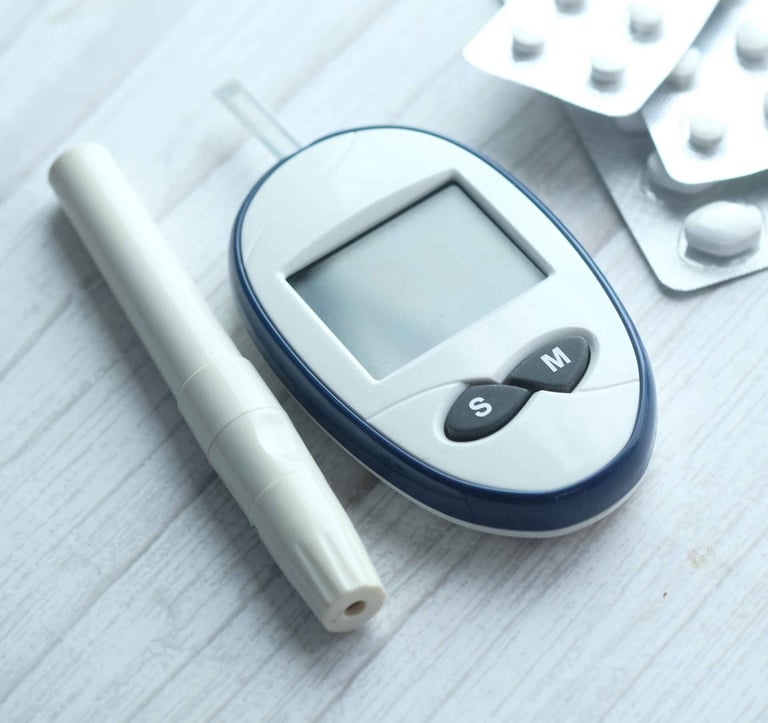Board Certified Diabetes Educator Pharmacist (BCDEP)
The Board Certified Diabetes Educator Pharmacist (BCDEP) credential recognizes pharmacists who have demonstrated advanced knowledge, clinical expertise, and patient-centered skills in diabetes care and education. This certification reflects a pharmacist’s ability to lead individualized treatment plans, optimize pharmacotherapy, support behavior change, and integrate technology to improve health outcomes for individuals living with diabetes.
BCDEP-certified pharmacists are equipped to serve across outpatient, inpatient, and community settings, acting as trusted experts within interprofessional diabetes care teams.


BCDEP Examination Outline
Exam Domains
The content of the exam is divided into three domains that reflect core areas of pharmacist-led diabetes management:
Domain 1: Clinical Assessment and Therapeutic Planning (60%)
Assess glycemic patterns and set individualized glucose goals.
Select and adjust oral agents, GLP-1 RAs, insulin, and other injectables.
Evaluate comorbidities and clinical factors influencing pharmacologic decisions.
Prevent and manage acute (DKA, HHS) and chronic (micro- and macrovascular) complications.
Domain 2: Diabetes Education, Lifestyle Modification, and Technology (25%)
Deliver structured diabetes self-management education and support (DSMES).
Use motivational interviewing to support behavior change.
Provide patient-centered guidance on nutrition, physical activity, stress, and sleep.
Apply diabetes technology, including CGMs, insulin pumps, and mobile health apps.
Domain 3: Special Populations and Systems-Based Practice (15%)
Adapt diabetes care plans for older adults, pediatric patients, and pregnancy.
Implement inpatient glycemic management strategies.
Navigate collaborative care models and quality improvement metrics.
Understand billing codes, reimbursement models, and population health tools.
Recommended Resources
The following references are recommended to support preparation for the BCDEP examination. These materials provide foundational and advanced knowledge in diabetes pharmacotherapy, patient education, and interdisciplinary management.
Please note: These resources are suggested examples only and are not exhaustive. Use of additional up-to-date clinical guidelines and primary literature is encouraged.
American Diabetes Association (ADA): Standards of Care in Diabetes (Most recent edition)
https://diabetesjournals.org/care
(Essential for evidence-based guidelines and clinical targets)Pharmacotherapy: A Pathophysiologic Approach – DiPiro et al.
(Chapters on diabetes, complications, comorbidities, and therapeutics)Handbook of Nonprescription Drugs: An Interactive Approach to Self-Care, 21st Edition – Berardi et al.
(For OTC products, technology, and lifestyle strategies used in diabetes management)Art and Science of Diabetes Self-Management Education Desk Reference, 5th Edition – ADCES
(Comprehensive reference on DSMES standards and patient education techniques)Community and Clinical Pharmacy Services: A Step-by-Step Approach – Ellis & Sherman
(Helpful for understanding population-based and ambulatory care models)The Diabetes Textbook: Clinical Principles, Patient Management, and Public Health Issues – American Diabetes Association
(Broad reference for complex cases, special populations, and systems-based practice)
Candidates are also encouraged to consult recent clinical trial data, FDA labeling, and technology comparison tools for insulin pumps, CGMs, and digital applications relevant to diabetes care.
© 2025. All rights reserved.